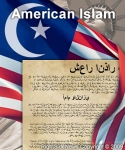03 August 2011
Troops in Mideast given guidance on Ramadan
 As Muslims prepare to observe the holy month of Ramadan with fasting and prayer, U.S. troops across the Middle East are being reminded to respect the customs of the societies around them. Among the
As Muslims prepare to observe the holy month of Ramadan with fasting and prayer, U.S. troops across the Middle East are being reminded to respect the customs of the societies around them. Among the
guidelines: Do not eat, drink, smoke or chew gum in public during the daily fast, and dress appropriately: no shorts or short skirts.
During Ramadan, which this year begins Aug. 1, Muslims refrain from eating or drinking between sunup and sundown.
Among guidance issued to U.S. military deployed in Muslim majority countries, the Bahrain-based command of U.S. Navy 5th Fleet posted guidance for sailors and their family members to heed during Ramadan when off base.
U.S. personnel are not expected to fast during Ramadan, but community members must refrain from eating, chewing gum, drinking water, smoking or chewing tobacco in public during daylight hours, according to 5th Fleet. “‘In public’ includes riding in a bus or car (even your own), walking or exercising,” according to the 5th Fleet’s Facebook page. “Eating, drinking or smoking by a non-Muslim in public during the day is considered a civil offence by many local laws, which may result in a fine or confinement.”
Alcohol consumption by U.S. military personnel in any off-base venue is prohibited during the holiday, with the exception of USO/MWR facilities, private off-base dwellings, or hotel rooms occupied by troops who are transferring or on a business trip.
Shorts are prohibited while off base during Ramadan as well, according to 5th Fleet, and women are required to wear pants or skirts long enough to cover their knees when seated.
Fifth Fleet spokesman Lt. Frederick Martin said this week that the command sends out Ramadan guidance annually.
“When in public, both in Bahrain and elsewhere in the 5th Fleet area of operations, Ramadan brings increased cultural and legal restrictions, which we, as guests in these countries, are expected to adhere to,” Martin said in an email.
In Kuwait and Qatar, U.S. 3rd Army provides training to troops, and also instructs them not to eat, drink, smoke or chew tobacco while off-base, spokesman Capt. James Sweeney said in an email.
“They are also warned that these actions are punishable under local law,” he said.
In Iraq, personnel are encouraged not to eat, drink or smoke in the presence of Muslims during the daytime hours, according to U.S. Forces-Iraq spokesman 1st Lt. Joseph Larrew.
“Also, any troops conducting meetings with Iraqis are encouraged to do so earlier in the day to be considerate to their needs,” he said in an email.
While NATO troops in the field across Afghanistan are not restricted from eating, drinking or smoking outside the wire, they are made aware of the holiday, according to Air Force Maj. Deb Balentine, a spokesman for the coalition’s International Security Assistance Force.
Troops are encouraged to be sensitive to the importance of fasting and not to eat or drink in front of Afghan citizens, she said.
They are also told to be aware of the limits fasting may put on Afghan police or soldiers’ abilities to conduct operations or train, she said.
A Defense Department press release Tuesday said Afghan soldiers and Marines from 1st Battalion, 3rd Marine Regiment in Helmand province were planning to distribute more than 1,200 bags of wheat grain to the local population.
“The Ramadan holiday is part of the daily life of every Afghan person,” 1st Lt. Paul Mooney, the assistant civil affairs team leader for 1/3, said in the release. “Showing we respect the holiday will help the perception of Marines to positively change.”
21:56 Posted in UNITED STATES | Permalink | Comments (0) | ![]() Facebook |
Facebook |



















The comments are closed.